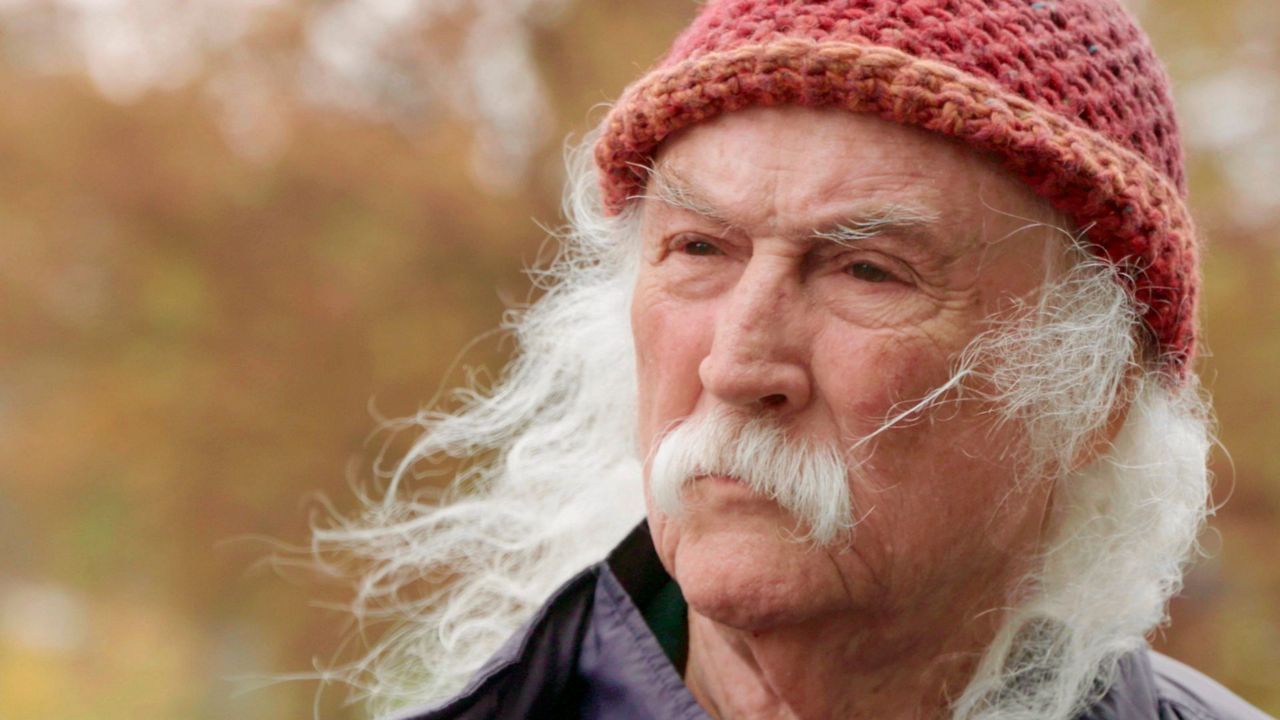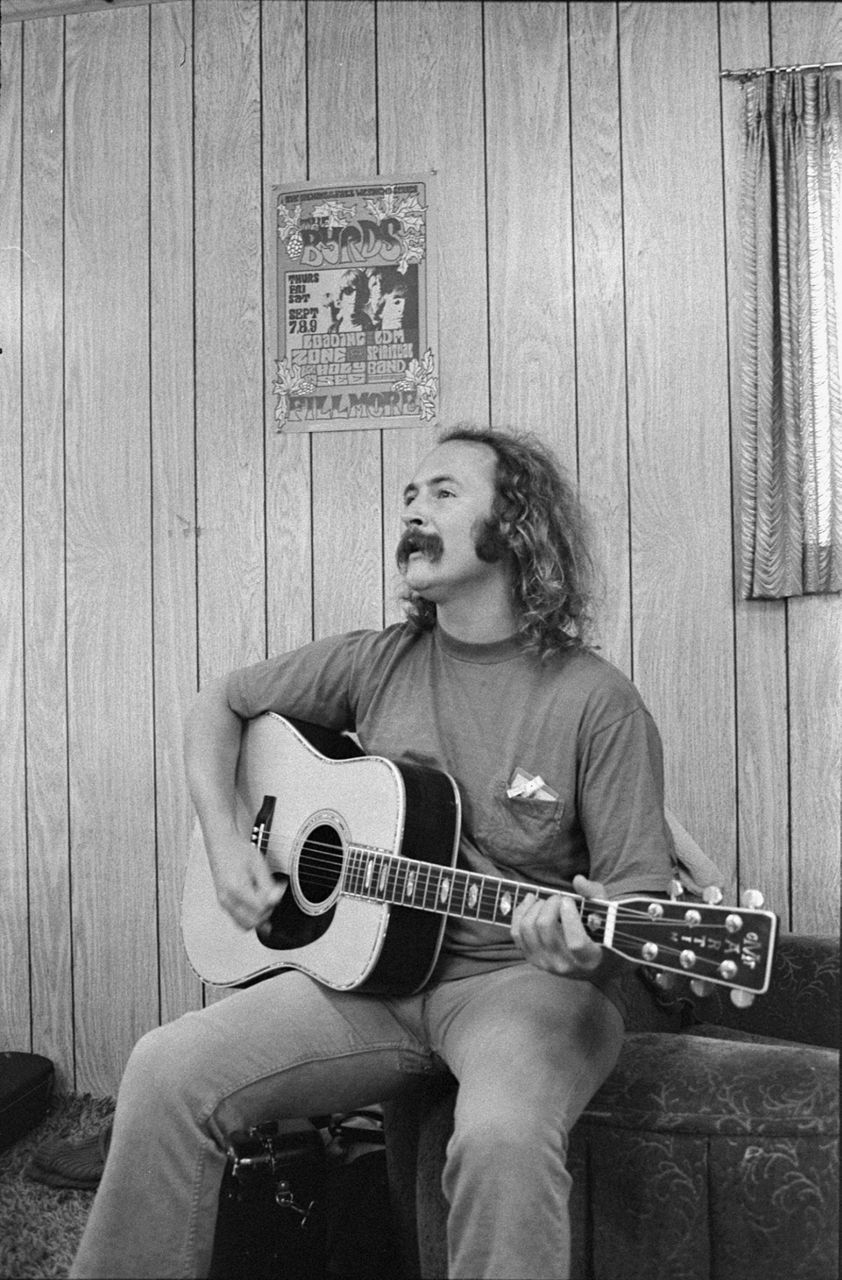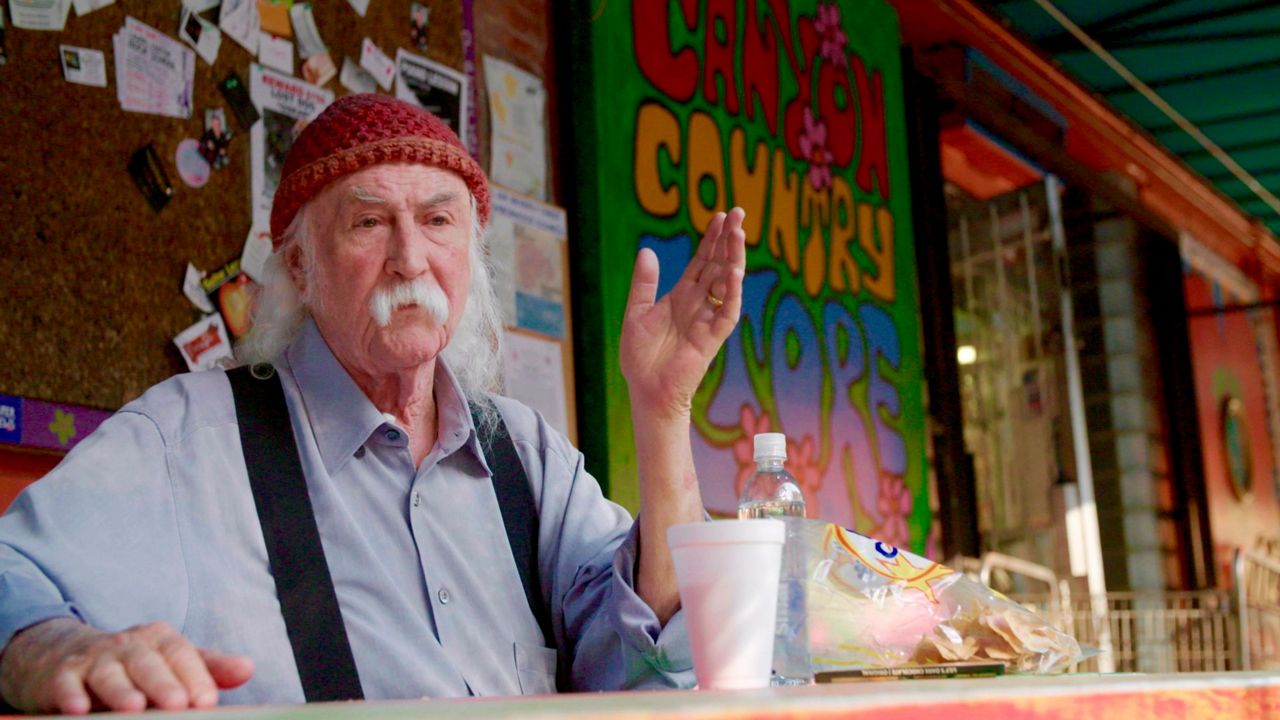The final image of David Crosby in a new documentary about the singer-songwriter shows him in his hippie glory, spotting a video camera filming him. He roguishly sticks out his tongue. Then he inexplicably goes further and gives viewers the middle finger.
It's sort of an apt gesture to sum up "David Crosby: Remember My Name ," director A.J. Eaton's fascinating and gentle attempt to see what makes this irascible two-time Rock and Roll Hall of Famer tick. Over the course of an hour and half, we learn a ton but never come much closer to understanding him. It's as if he traveled back in time to flip us the bird just to mock us for trying.
For viewers only vaguely familiar with this white-haired folk-rock icon with a drooping mustache and an ever-present red knit cap, the documentary nicely charts Crosby's life and career, generally in chronological order but often flaring out to deal with themes like his addictions and loves. (Viewers are advised to come knowing something about the time period. Like, you're best knowing who this Joni Mitchell lady is before watching.)
Crosby's life and art intersect key moments in American history — the 1970 Kent State shootings, Woodstock, the Vietnam War, "Easy Rider" among them. He was a member of three major groups in music history — The Byrds, Crosby, Stills & Nash, and Crosby, Stills, Nash & Young. He served time in prison, had a liver transplant and is still making excellent music.
But we'll remember his name as much for the songs as for the destructive force he became. None of his former bandmates talk to him. It's not that they lost touch — they actively hate him. "I was a difficult cat," he admits at one point.
Finding out why becomes a key focus of the documentary. Various theories are floated — a withholding father, a girlfriend's death in a car crash, addiction to heroin and cocaine. (But it may not be fair to blames the drugs since his bandmates hated his guts when those guts were sober, too.) This towering figure in music seems isolated, with just the company of his wife and dogs, horses and cats.
The film contains wonderful stories from Crosby — why he never liked Jim Morrison of The Doors, when Young auditioned for the band and how Mitchell broke up with him. Unfortunately, there isn't time to explore how he became the sperm donor for two kids parented by Melissa Etheridge and Julie Cypher.
We get a few stray opinions on Crosby from Young, Nash, Glenn Frey, Jackson Browne, and his wife, Jan Dance. The reasons for why Crosby is so polarizing are politely danced around and his worst behavior is elided. What about that famous time Crosby stopped a recording session because his crack pipe broke? Or when he freebased under his coat while flying first class?
Although Cosby acknowledges he did and said awful things, the film needs more voices of people fed up with his behavior and why it broke them apart. That's the film's Achilles heel: It's overly reverential. Crosby is rarely challenged. (At one point, he says he has eight cardiac stents and says that's the limit a patient can have. Nonsense.)
Another quibble is about a figure who flits in and out of the film — Cameron Crowe, who made the semi-autobiographical "Almost Famous" based in part on hanging out with Crosby, Stills & Nash. Crowe is a co-producer of the documentary and has lent the filmmakers old interviews he did as well as gently questioning Crosby on camera for this film. He's sort of ghostly midwife for Eaton but without having any skin in the game.
Eaton uses archive footage and photos, concert outtakes and, a little weirdly, cartoons to illustrate key moments in Croz's life. Mostly his subject is on the move, seated in the back seat of an SUV as he rolls on to the next gig or visits key places in his youth.
These moments actually offer a sly insight into a demanding man who is liable to criticize the SUV's driver — "Take a left!" — as much as the filmmakers — "There's no cinematic value here," he grouses at one pit stop. But he may have a point on another scene: Crosby stands outside the house in Laurel Canyon where Crosby, Stills & Nash first made music and the camera lifts up, hopefully — but goes no further. Crosby is left to awkwardly narrate outside. It's clumsy filmmaking — either go in or cut it out. That's the problem with the overall film, too — it stands outside respectfully and just doesn't go for it.
"David Crosby: Remember My Name," a Sony Pictures release, is rated R for "language, drug material and brief nudity." Running time: 95 minutes. Two and a half stars out of four.
___
MPAA definition of R: Restricted. Under 17 requires accompanying parent or adult guardian.
___
Mark Kennedy is at http://twitter.com/KennedyTwits
Copyright 2019 The Associated Press. All rights reserved. This material may not be published, broadcast, rewritten or redistributed.





